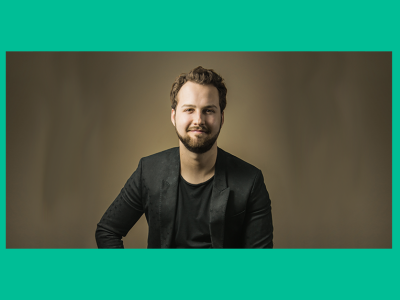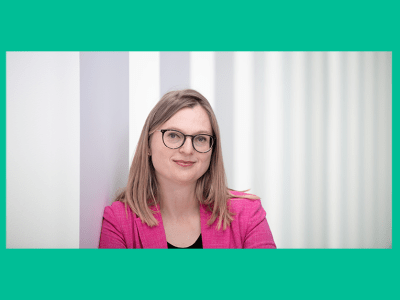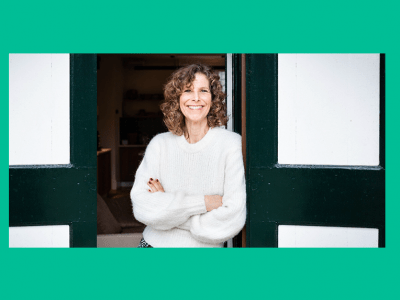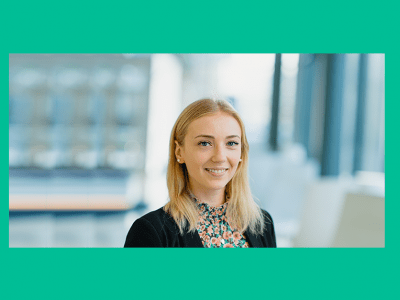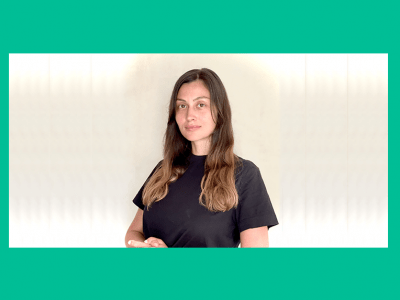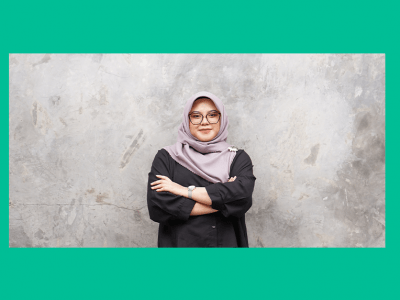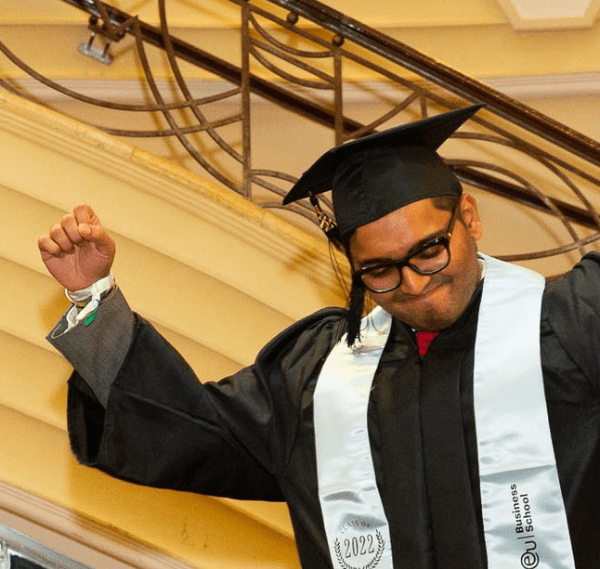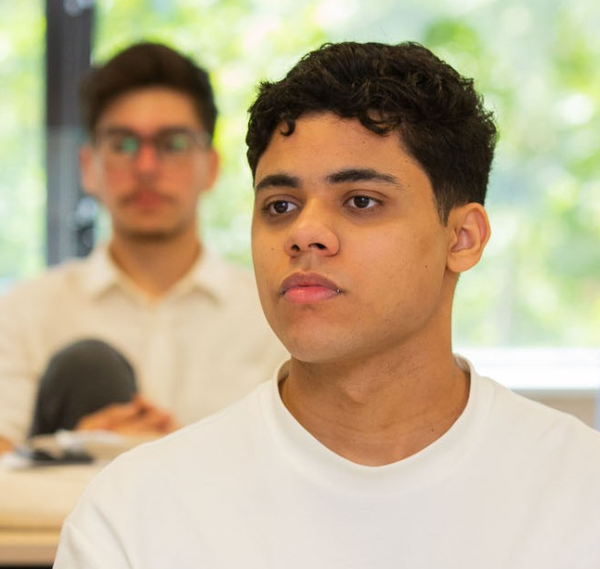EU alumna Fatma Nur Yavuz recently published a book with London Academic Publishing based on her dissertation topic: ‘An Analysis of the Socio-Economic Impacts of the Syrian Refugee Crisis on Turkey’.
Fatma studied her Bachelor of Arts in International Relations at EU’s Montreux campus. She graduated in June 2019 and is now living in Zurich, Switzerland. Fatma is originally from Antalya, Turkey and speaks Turkish, German, English and French. Alongside her job as Secretary General at MÜSIAD Switzerland, Fatma enjoys horseback riding and travelling.
We spoke to Fatma about her book, her EU experience and her plans for the future.
Why did you choose to study international relations?
I chose this subject because of my international background and my interest in world politics. The reason I chose to study international relations at EU Business School is because even though your major is in international relations, you also get to experience many business courses, which allowed me to learn the world of business while pursuing my diplomatic major.
Why did you choose to study at EU’s Montreux campus?
I chose the Montreux campus because of its family environment. I believe it was the best choice for me because not only did I know everybody from my class and year, I got to know everyone at EU Montreux. And not just classmates; I think the Montreux campus is the only place where you can really connect with your professors. One of the greatest benefits for me was that I had most of my international relations courses one on one, which allowed us to progress faster through the syllabus and to focus more on things which I was particularly interested in.
What are your highlights from your time at EU Business School?
My time at EU Business School flew by very fast. I met some of the best people in my life and made great connections with students and professors. I finished my studies in one year and seven months, from September 2017 to June 2019, because I continued my studies during the summer of 2018, taking two summer semesters which added up to my second year. So, it was hard, but I had the best times of my life at EU Business School.
One of my EU highlights was our trip to Change the World Model United Nations in New York in March 2019. As an international relations student, I was very excited. I had been to a Model United Nations before and really enjoyed it, and it was also my first time in the US.
The trip took place during the most chaotic and stressful weeks of my degree; it was my last semester, we had upcoming final exams and deadlines, and the trip required a lot of pre-learning too. However, I went with two of my best friends and was paired with one of them for the trip. The first day, neither of us knew what was going on and we felt really lost. But on the second and third days we got into the diplomatic flow, took the lead and led the next debates. At the end of the three days we were both given awards that acknowledged the hard work we put into the experience and the leadership skills we had shown.
Congratulations on your recently published book! The topic of the book is the one you chose for your dissertation.
Why did you decide to explore this subject?
The topic of my dissertation and book is the socio-economic effects of the Syrian refugee crisis in Turkey. Deciding on this subject was easy for me because the Syrian refugee crisis had been in the media for a very long time, it was one of the main topics being discussed by international leaders and organizations, and most importantly for me it was about my home country.
Another reason I was really interested in this topic is because humanitarian issues in general interest me very much and I believed that I had the connections I needed in order to successfully write this piece.
How did your dissertation come to be published?
At graduation I received the “Best Dissertation” award, which was the first step toward publication.
There were a few distinguishing features to my dissertation. Even though many articles and books have been published about refugees and maybe even specifically Syrian refugees, none of them compared factual economic data with the perceptions of society. And, a great portion of my analysis was based on primary research. I interviewed both Syrian refugees and Turkish citizens in order to compare the social effects of the refugee crisis with factual economic data.
I believe these two factors led to the publication of my dissertation.
Could you tell us about your book?
My book analyses the socio-economic impact of the Syrian refugee crisis on Turkey, with insights from Turkish citizens as well as Syrian refugees. I looked at the changes to economic indicators in Turkey such as unemployment, GDP per capita and inflation rates from the beginning of the refugee crisis in 2011, up to 2019. The analysis does not only focus on the changes that have happened since 2011 in Turkey as a whole, but also compared these changes to variations that can be seen between cities in Turkey with large refugee populations, such as Sanliurfa or Hatay. The reason behind this distinction is because I was looking for trends related specifically to Syrian refugees, which you cannot extract by only looking at trends for the whole country.
Which publisher did you work with and how did you find them?
My book is published by London Academic Publishing. They were recommended to me by one of the professors at EU Business School, which made it easier for me to get in contact with a publisher I could trust. The publishing process took about six months and was a lot more work than I had imagined at the beginning. Since this was a dissertation piece, I had clear guidelines I had to follow while writing it for the purpose of graduating and earning my degree, all of which had to be changed so that it could be published as a book.
Who do you hope is reading your book and why?
Even though it is an academic piece, I believe it is an easy read for everyone, including people who do not have any prior knowledge of the refugee crisis. But I really hope that it reaches people who have the ability to change the current situation.
Was becoming a writer or published author always one of your ambitions?
Honestly, no. The first time I thought of publishing a book was towards the end of the dissertation writing process, when I started getting very positive and kind feedback about it. That’s when I first thought of publishing, but still then It was not something I could imagine or even dream of doing, since for me at the time it was only a piece I wrote in order to graduate.
If I were to pinpoint a time when it hit me and I thought “yes, I need to do more with this dissertation”, it would be after the defense of my dissertation. During the writing process, you are on your own and the only person you really talk to about what you’re writing is your coordinator, but these are consultations based on more technical topics regarding your thesis. During the defense, I realized how much effort I had put into this work, how passionate I was about the issue, and most importantly how closely it was related to the work I would like to do in the future.
How did your time at EU help you to achieve this goal?
One of the main contributors to my success was my dissertation promoter, Professor Judit Kozenkow. She always provided me with great guidelines and feedback.
Studying at the Montreux campus was a really special experience. The close relationships I was able to form with my professors were of enormous help to me too, because whenever I had a question regarding anything about classwork or even something that I was particularly interested in, all the professors took time to help and were there for me.
Now that your book has been published, what do you plan to do/write next?
I think I will continue writing and hopefully also publishing books on various topics. However, it’s very important for me to find the right topic, one that I am ambitious about, one which has not been explored much and would interest the audience as well.
Since I have been through the whole process now, I can truly say that it is not an easy path. It takes a lot of time, effort and patience in order to transform a written piece into a book. But I do believe that I will continue to write alongside my career.
Currently, I am the Secretary General of an organization called MÜSIAD (Association of Independent Entrepreneurs and Industrialists), where I am responsible for increasing trade associations and relationships between Turkey and Switzerland whilst also being in contact with Turkish entrepreneurs and industrialists around Switzerland. Besides entrepreneurs and industrialists, I meet with ambassadors of various political parties as well as the Turkish ambassadors in Switzerland and Swiss ambassadors in Turkey, and discuss trade opportunities and our duties to industrialists in Switzerland.
In the future I would like to start up my own charity or NGO focusing on children and providing them with education. Children are the future and I believe it all starts with teaching them the right things.
Fatma’s insightful and informative book, ‘An Analysis of the Socio-Economic Impacts of the Syrian Refugee Crisis on Turkey’ can be found here.
If you, like Fatma, are interested in studying diplomacy and politics while gaining a thorough understanding of business, find out more about our Bachelor’s in International Relations which can be studied at our Geneva, Montreux and Barcelona campuses.


